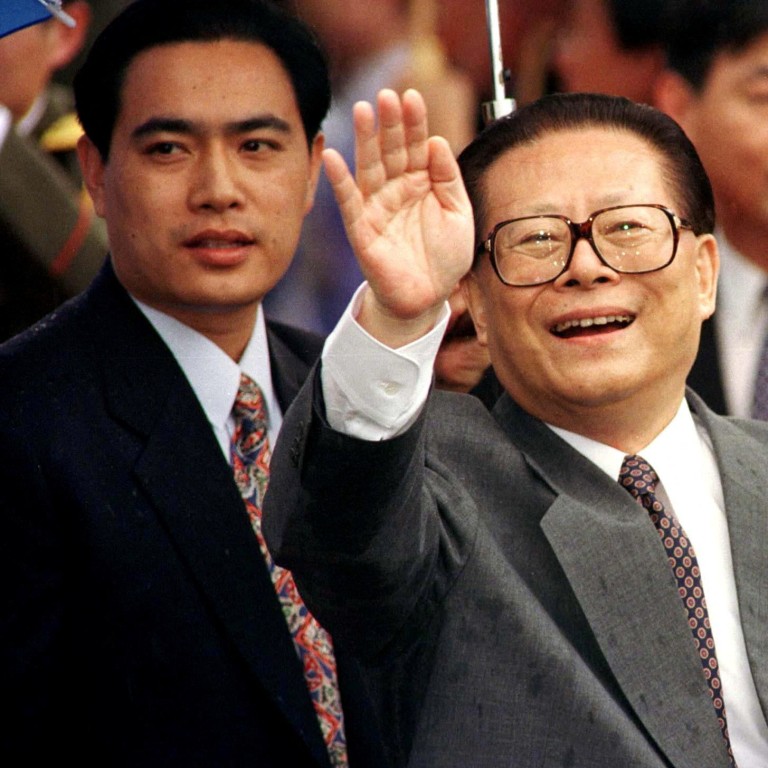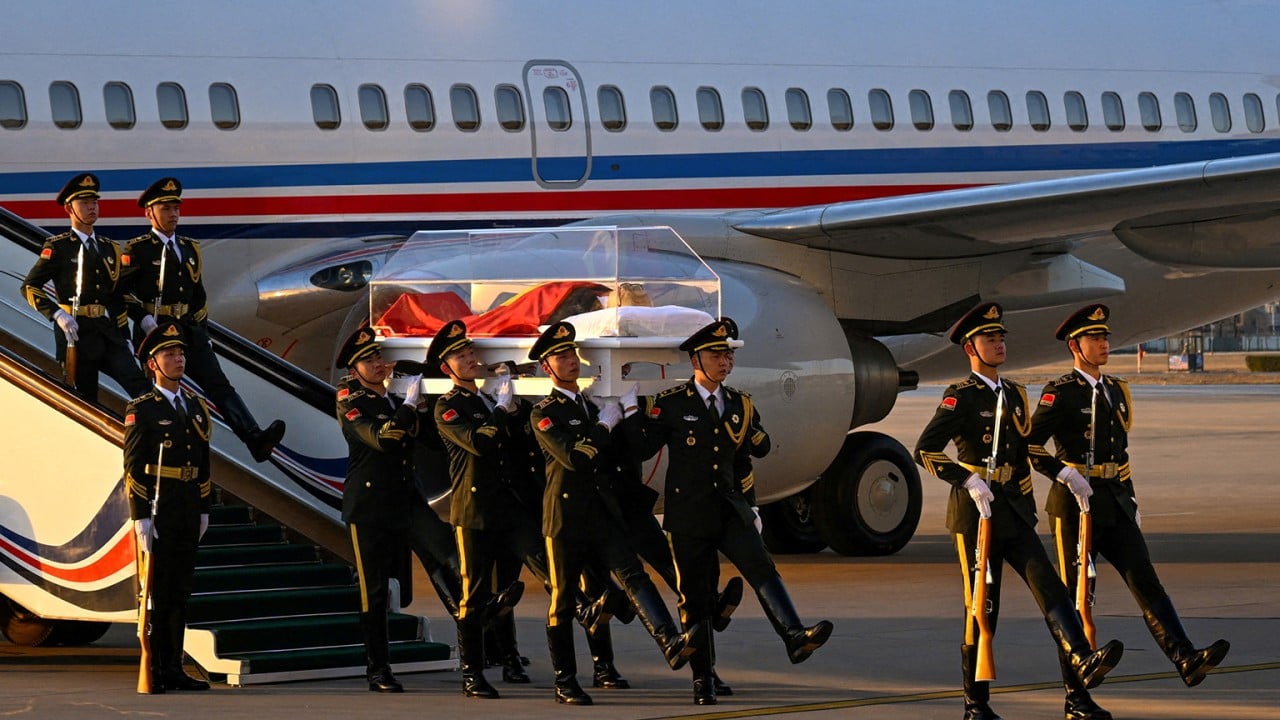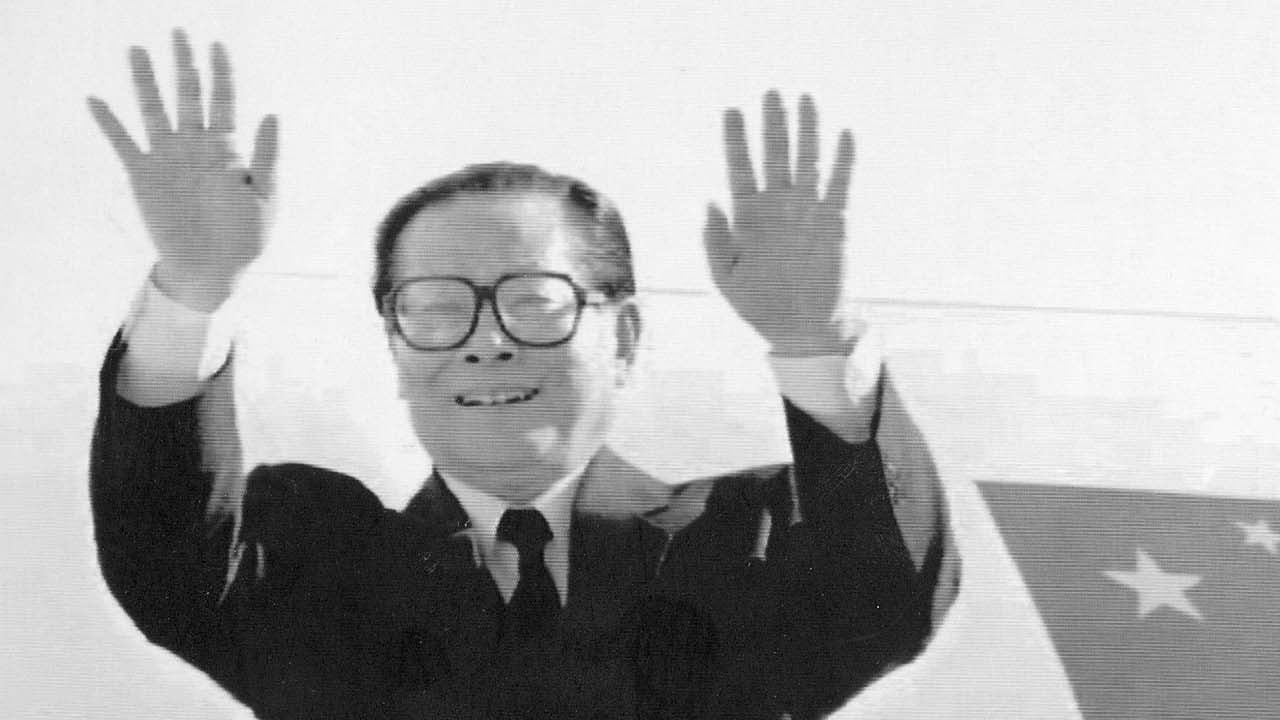
Jiang Zemin cremated in Beijing, top leaders pay their respects
- Ceremony held at PLA hospital before casket taken to Babaoshan cemetery
- Memorial service to be held on Tuesday for Jiang, who died last week at 96
A brief closed-door ceremony was held at the Chinese People’s Liberation Army General Hospital at 10am before Jiang’s casket was taken to the cemetery for cremation, state news agency Xinhua reported.
Xi was joined by the rest of the Politburo Standing Committee for the farewell ceremony, as well as former members who stepped down at the Communist Party congress in October including Premier Li Keqiang and Wang Yang, head of China’s top political advisory body.
Among the retired leaders at the ceremony were former president Hu Jintao and former premier Wen Jiabao.
Xi and dozens of others bowed three times in front of Jiang’s casket, which was guarded by soldiers.
The hospital’s memorial hall was filled with floral wreaths and banners sent by Jiang’s family members, senior party officials and organisations, according to Xinhua.
Jiang Zemin: the president who took China from Tiananmen pariah to rising power
At around 10.20am, eight soldiers carried Jiang’s casket to a hearse. They were led by Jiang’s eldest son, Jiang Mianheng, who held a portrait of his father, and followed by Xi and other top officials.
Crowds of people – selected from government departments and social groups in Beijing – lined the streets as the hearse made its way from the hospital to the cemetery.
At the Babaoshan cemetery – where many late state leaders are cremated and their remains interred – Xi and other top officials again bowed three times in front of Jiang’s casket and shook hands with his family members before the former leader’s body was cremated.
A memorial service for Jiang will be held on Tuesday morning and is expected to be attended by current and former leaders. It will be broadcast live by state media.
All securities trading on the mainland will be suspended for three minutes when a moment of silence takes place at the start of the service. Trading in bonds, foreign exchange and gold will also be halted, according to regulatory authorities. Mobile games including the popular King of Glory will also be suspended on Tuesday.
Flags have been lowered to half-mast at official buildings and embassies, while many websites – including news, government, university and social media platforms – have switched to black and white to mark Jiang’s death.
Jiang, who was Communist Party chief from 1989 to 2002, is being remembered as one of China’s most influential leaders. He elevated the country’s global standing and led its economic integration with the rest of the world, overseeing key moments including the accession to the World Trade Organization in 2001 and the handover of Hong Kong from Britain to China in 1997.



